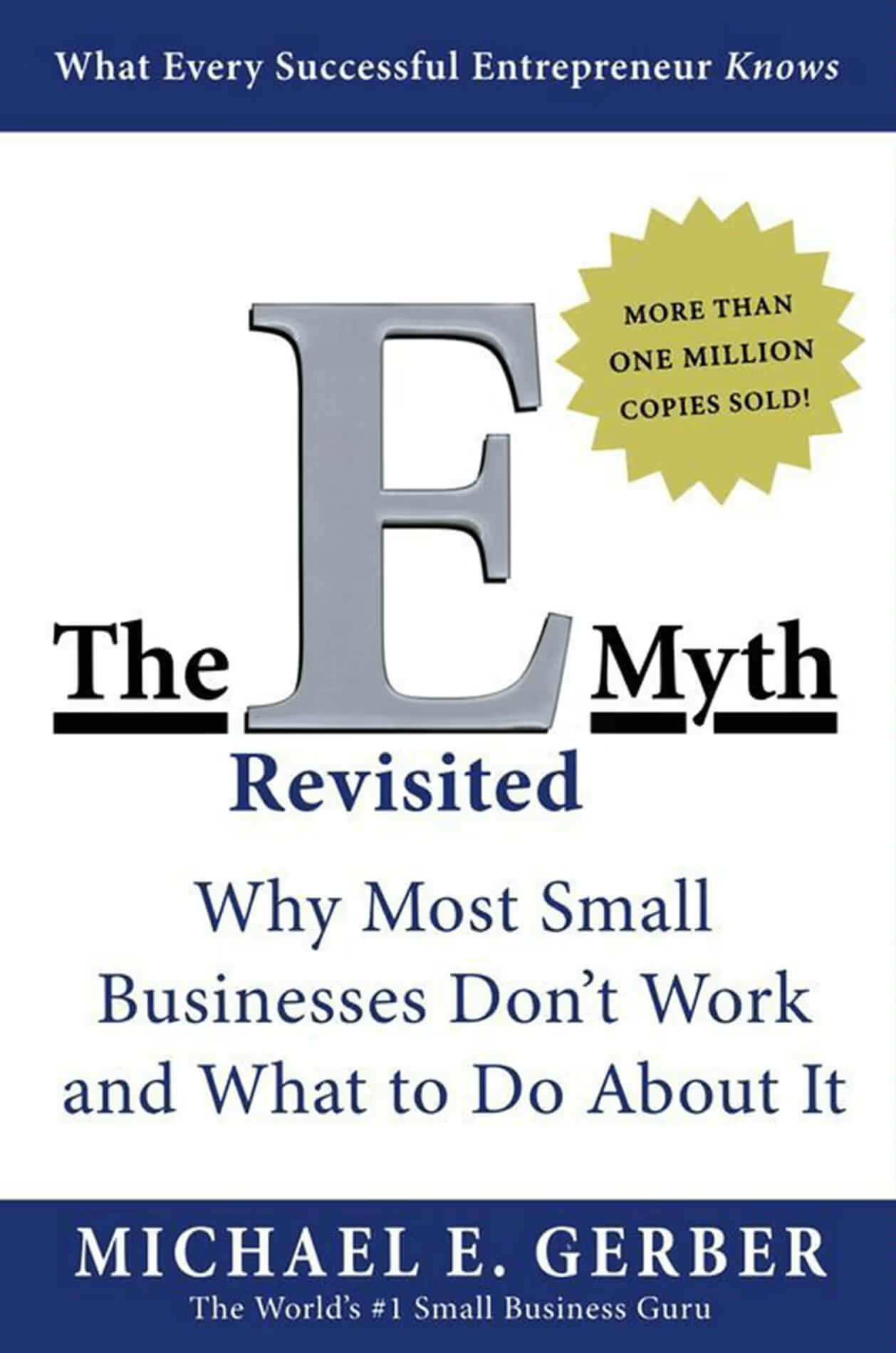Michael Gerber
The E-Myth Revisited
The E-Myth Revisited: Why Most Small Businesses Don’t Work and What to Do About It
The E-Myth Revisited: Why Most Small Businesses Don’t Work and What to Do About It, by Michael Gerber is on my list of required reading for any aspiring entrepreneur. Having read the book several times now, the message speaks to me differently each time I read it.
The author uses a narrative format to illustrate his concepts through a fictional conversation with the owner of a struggling pie restaurant. Gerber introduces us to the three personalities of an entrepreneur; the Technician, the Manager, and the Leader. I think one has to directly experience wearing many hats in a small company to fully appreciate the truth of those competing personalities. After explaining why neglecting any of the three personalities dooms a business to failure, primarily through abdication of the leader or manager role, Gerber proposes a solution - building a business as a franchise prototype.
The Franchise Prototype
Now, I'm not sure if Gerber coined the exhortation, "Work ON your business more than you work IN your business," but he certainly seems responsible for its ubiquity. He finds the McDonald's franchise business model with its obsessive focus on a standardized process for every aspect of a McDonald's restaurant to be the highest aim of any small business, whether the business actually franchises or not. He makes a compelling argument for standardization of products and services - the lack of which creates confusion for customers and chaos for employees. Gerber describes an early version of AB testing the various elements of the franchise prototype to figure out what changes drive a lift in sales - then standardize what works. Gerber presents the franchise prototype as his answer to the competing personalities problem posed earlier - that all three find satisfaction when viewing the business as a test organization with a plan from the beginning to be scaled up.
Influence
Gerber's insistence on building an organization chart from the beginning and having an obsessive focus on standardizing core processes can be seen influencing more recent authors like Gino Wickman's book Traction, or Verne Harnish's book Scaling Up. While there is certainly value in standardizing processes as organizations grow, I do think processes can become over-defined, removing latitude from front-line employees to be able to make decisions and offer custom solutions to customers. Particularly, I have become concerned with the trend of business consultants who offer their solution as the ONLY solution to a given problem area, providing pedantic boiler-plate solutions based on their ideology. By contrast, frameworks, and a process for executing a mental model, can be incredibly helpful in finding order in the chaos of uncertainty of developing a strategy. Lack of process creates chaos, but too much order creates stagnation and stifles innovation. For those seeking order out of chaos, I highly recommend the E-Myth Revisited.

